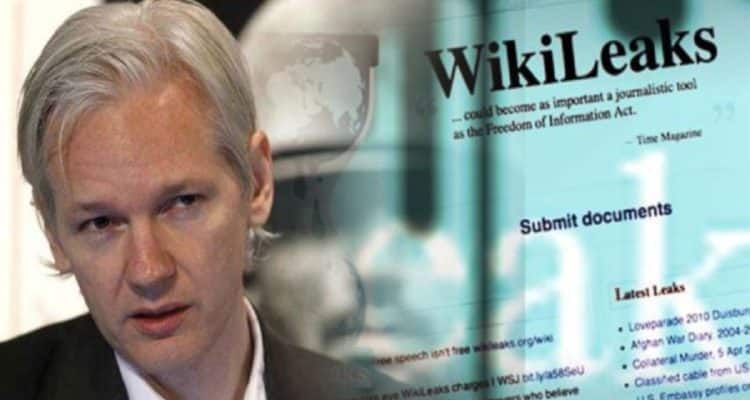Julian Assange and WikiLeaks have not just been targeted by the United States government in response to their publishing of US government secrets. They have also been subjected to false reporting in the media.
In an email sent to media organizations on Sunday, WikiLeaks details that, due to “a pervasive climate of inaccurate claims about WikiLeaks and Julian Assange, including purposeful fabrications planted in large and otherwise ‘reputable’ media outlets,” Wikileaks is providing in the email a list of false and defamatory claims about WikiLeaks and Assange for journalists and publishers “to ensure they do not spread and have not spread falsehoods about WikiLeaks or Julian Assange.” A Reuters report counts a total of 140 items in the email’s “Defamation List.”
The email, which is marked at its beginning as a “confidential legal communication” and “not for publication,” has been posted online — something people associated with WikiLeaks, which specializes in publishing information sought to be kept secret, would seem likely to have anticipated.
Included in the email’s Defamation List are claims you may have seen in multiple media reports regarding WikiLeaks or Assange. The list advises that it is “false and defamatory to suggest that Julian Assange is, or has ever been,” for example, “charged with an offence by the United Kingdom or Sweden” or “an agent or officer of any intelligence service.” Also declared “false and defamatory” are suggesting that Assange “has been accused by any person of raping them” or “has ever met or communicated with [former Donald Trump presidential campaign Chairman] Paul Manafort.”
The list also includes many “false and defamatory” suggestions in regard to and Assange and WikiLeaks together, including that either of them has ever “directed, conspired, or colluded in a criminal manner with its sources;” “colluded with or conspired with, or compromised the integrity of its journalism for, any political campaign or State;” or “suppressed materials critical of Israel, Russia or any other State.”
Notably, the email’s Defamation List also terms as “false and defamatory” claims denying the status of WikiLeaks as a media organization and Assange as an “editor, journalist, publisher, author and documentary maker.” Indeed, the email further notes that WikiLeaks and Assange have won awards for their journalistic efforts, as well as that WikiLeaks has “a perfect record of accurately verifying its publications.” Such information may be helpful in defending Assange and WikiLeaks against any charges in America, where journalists and media organizations have substantial basis for arguing they are protected from prosecution for publishing the secret government information they receive.
Read the WikiLeaks email, including links to supporting materials, here.


